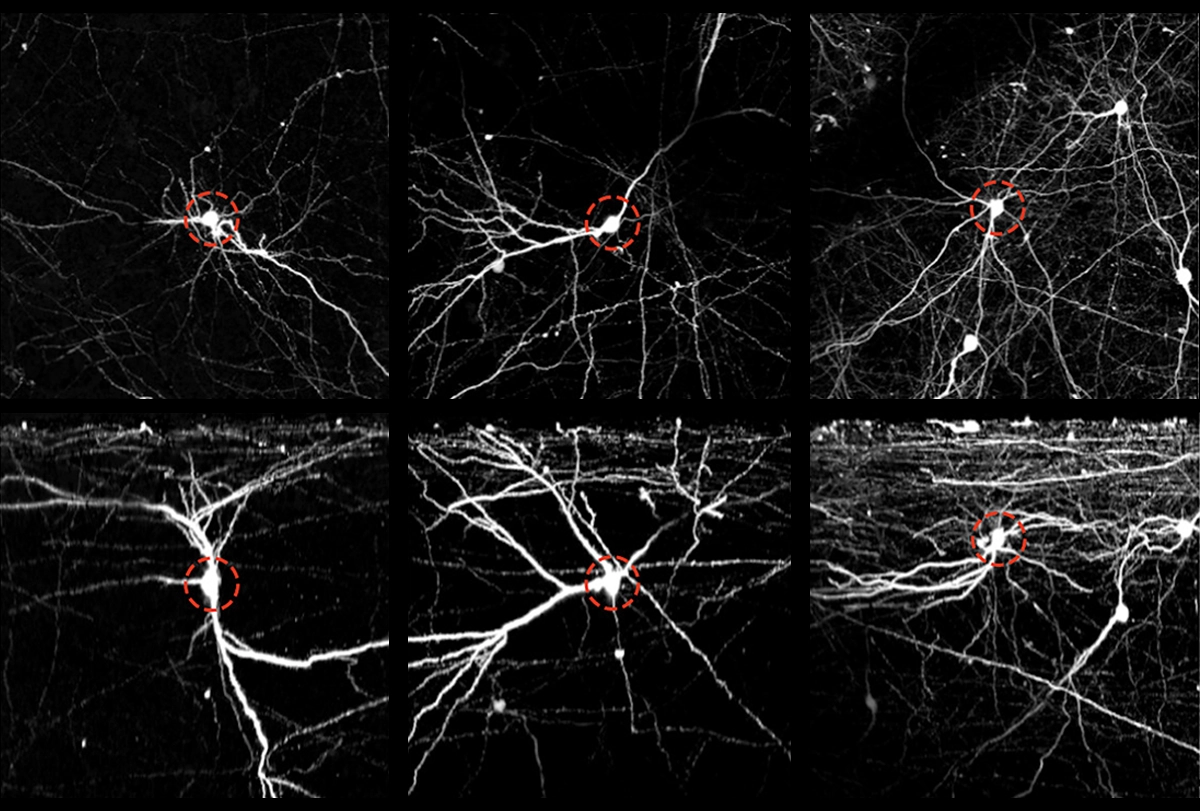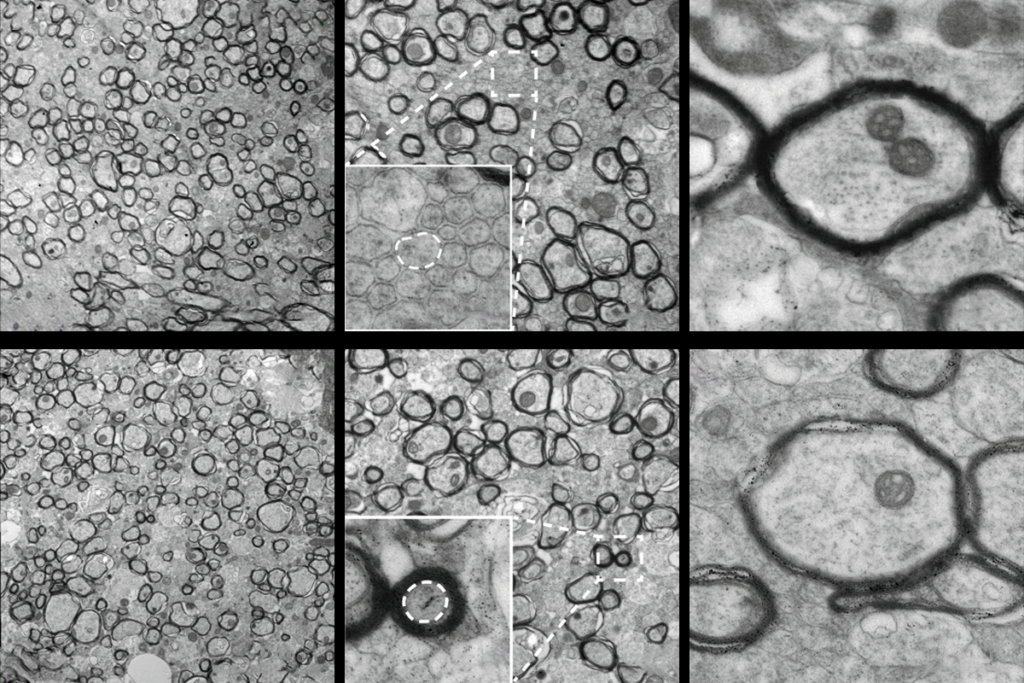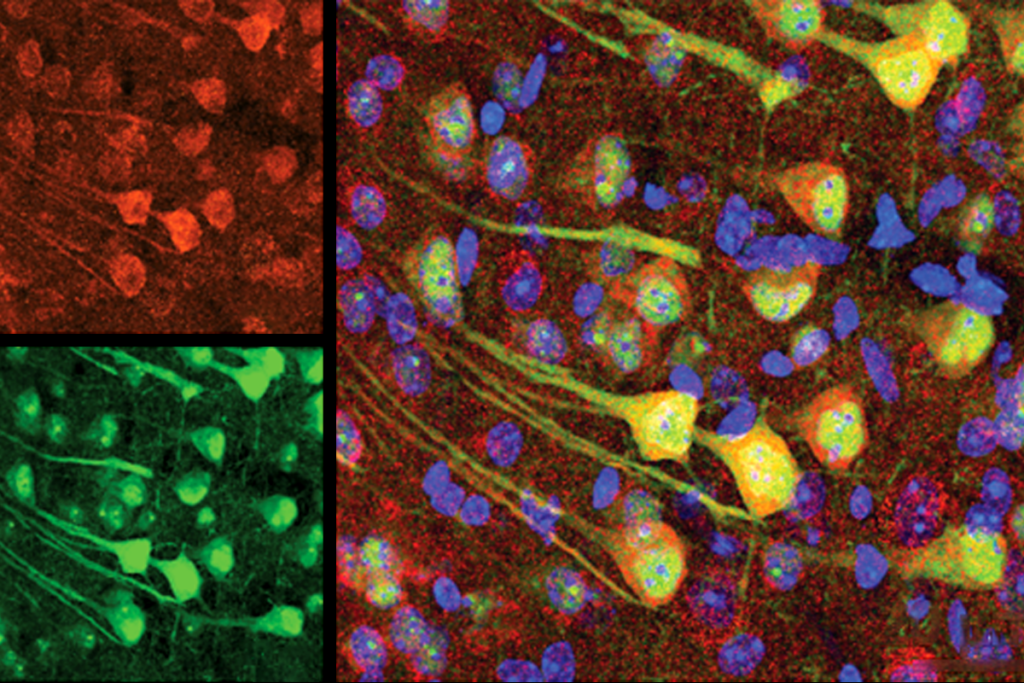- People with single-gene variants associated with autism display altered attentional skills compared with those with idiopathic autism. More specifically, those carrying DYRK1A variants show atypical responses in an auditory task, whereas those carrying SCN2A variants show atypical responses in a visual task. Spectrum has previously reported on researcher Caitlin Hudac’s mobile lab that enables her to test people in their homes. Autism Research
- Gene variants associated with congenital heart disease that affect neural progenitor cells appear also to be associated with autism and ciliary function, according to a preprint. Spectrum has reported on the links between congenital heart disease and autism, as well as links between ciliary biology and autism. bioRxiv
- Brain organoids may have limited utility in evaluating sex-based differences that could arise from chromosomal or hormonal differences and lead to altered development, according to a review of studies. Biological Psychiatry Global Open Science
- A survey of people with intellectual or developmental disabilities, their caregivers and clinicians provides a first step in establishing community-driven policy goals for this population, which numbers 10 million in the United States. JAMA Health Forum
- In a multinational survey of autistic adult interactions with police, noncriminal encounters are most common, and reporting crimes against the autistic person are second most. Spectrum has previously reported on programs to train police in how to interact with autistic people. Autism Research
 Making contact: Human neurons with only one copy of the autism-linked gene SYNGAP1 (middle panel) or with zero copies (right panel) grow more dendritic spines and more synapses than those with two copies (left panel).
Making contact: Human neurons with only one copy of the autism-linked gene SYNGAP1 (middle panel) or with zero copies (right panel) grow more dendritic spines and more synapses than those with two copies (left panel). - Human cortical neurons deficient in SYNGAP1 that are transplanted into mouse brains display accelerated synapse formation and disrupted synaptic plasticity, which may underlie neurodevelopmental conditions. Neuron
- Non-autistic and autistic people show similar empathy scores on the multidimensional Perth Empathy Scale, though there was more variability in the autistic group. Spectrum has previously covered the challenge of measuring this trait in autism. Journal of Autism and Developmental Disorders
- Neuronal circuitry in the medial prefrontal cortex is key to social behaviors and is altered in autism, according to a review of studies. Spectrum has previously covered neuronal circuits underlying social behaviors in animal models of autism. Neuropharmacology
- People with autism and those with attention-deficit/hyperactivity disorder both tend to show greater cortical thickness than those without either condition, but autistic people have larger cortical volumes, whereas people with ADHD have smaller volumes. Biological Psychiatry
- Children diagnosed with autism early in life have different trajectories than those diagnosed later, according to a preprint. medRxiv
Congenital heart disease; community-driven policymaking; empathy in autism
Here is a roundup of autism-related news and research spotted around the web for the week of 19 August.
By
Jill Adams
20 August 2024 | 3 min read
tags:
Recommended reading

Microglia implicated in infantile amnesia
By
Lauren Schneider
12 February 2026 | 5 min read

Largest leucovorin-autism trial retracted
By
Claudia López Lloreda
3 February 2026 | 4 min read
Explore more from The Transmitter

Oligodendrocytes need mechanical cues to myelinate axons correctly
By
Calli McMurray
11 February 2026 | 5 min read
Modern AI is simply no match for the complexity likely required for harboring consciousness, says Jaan Aru
By
Paul Middlebrooks
11 February 2026 | 1 min read

Aging neurons outsource garbage disposal, clog microglia
By
Holly Barker
10 February 2026 | 4 min read
Cite this article:
